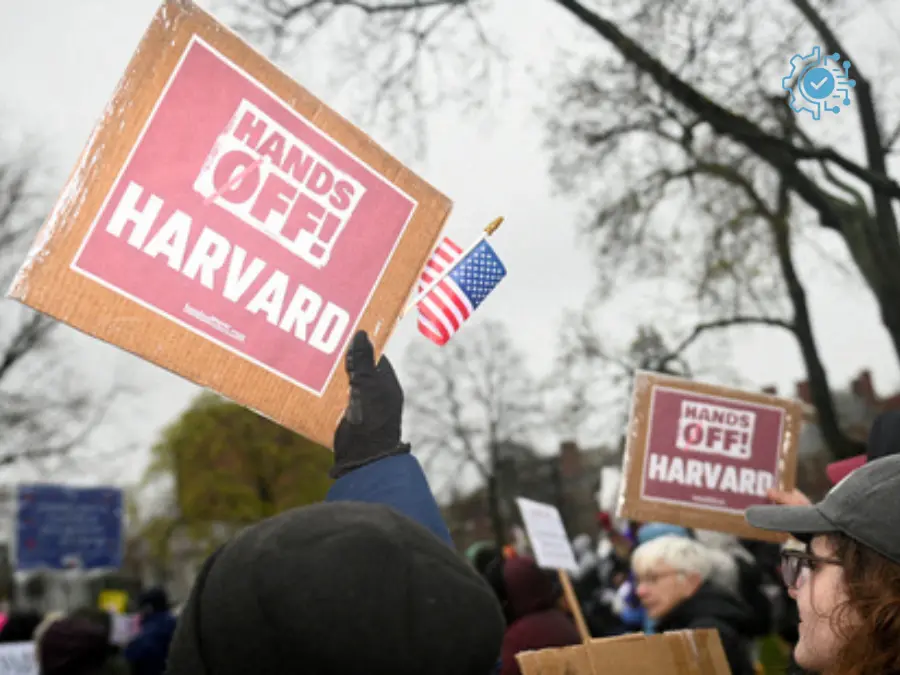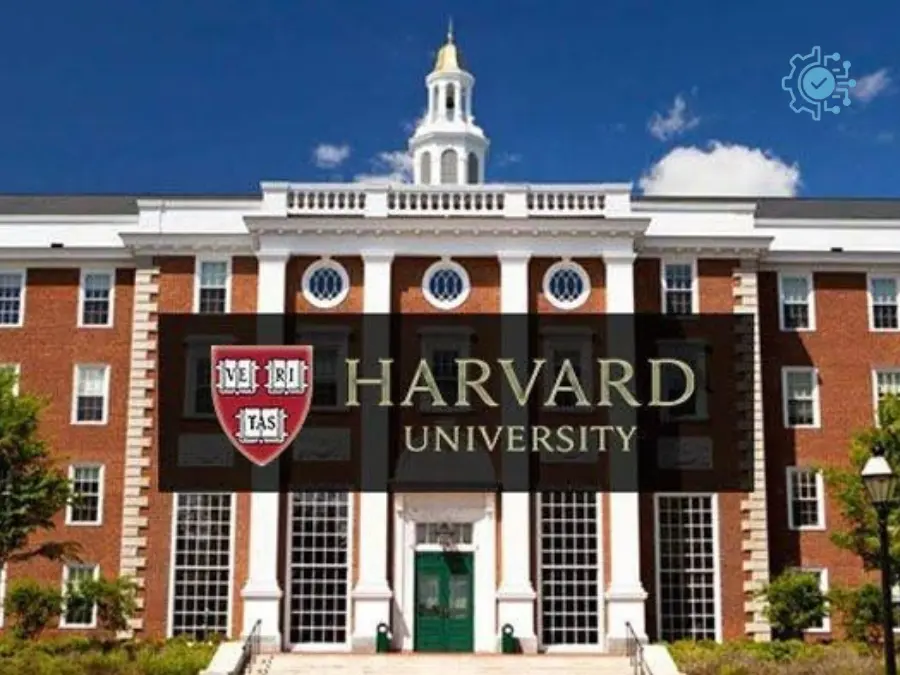Harvard University has filed a lawsuit against former President Donald Trump after his administration froze a $2.2 billion federal research grant. The university claims that Trump’s decision is illegal and politically motivated. This lawsuit highlights the growing tension between political leaders and academic institutions in the U.S.
The $2.2 Billion Grant: What’s at Stake?
The $2.2 billion grant was initially allocated by the Biden administration to fund crucial research across various fields, including artificial intelligence, public health, and climate change. Harvard, along with other top universities, planned to use this funding to make significant strides in science and innovation. The grant was designed to be distributed over five years, offering researchers the support they need to tackle some of the world’s most pressing challenges.
However, shortly after Trump announced his candidacy for the 2024 presidential election, he froze the grant. His administration cited national security concerns as the reason for the freeze. Many, however, believe the freeze was part of a broader political strategy, aimed at punishing universities that oppose his political views.
Why Harvard Is Taking Legal Action
Harvard argues that Trump’s freeze violates federal law and infringes upon academic freedom. The university’s legal team has filed a lawsuit in federal court in Massachusetts, requesting the court to lift the freeze and release the funds immediately. Harvard’s president, Claudine Gay, strongly condemned the decision:
“This freeze is not only an attack on Harvard, but on academic institutions across the country. We must not allow political retaliation to endanger critical research.”
The lawsuit is more than just about money. It’s about the principle of academic freedom—the right of universities to pursue knowledge without political interference. Harvard argues that the freeze is a deliberate attempt to suppress research that may contradict Trump’s political views.
Trump’s Justification: National Security or Political Revenge?
Trump has defended his decision, claiming that the president has the power to withhold funding for national security reasons. His spokesperson stated that the freeze was part of an effort to prevent wasteful spending by universities that, according to Trump, promote left-wing ideologies.
During a recent rally, Trump reiterated his position on the grant freeze. He argued that universities like Harvard should not receive federal funding for research that aligns with political views he considers harmful:
“Why should we fund universities that spread anti-American ideas?” Trump asked. “Harvard has become a hotbed for radical ideologies.”
These comments sparked outrage among academics, who view Trump’s actions as a clear attempt to punish institutions that challenge his administration.

The Legal and Political Impact
The outcome of the Harvard vs Trump lawsuit could have far-reaching consequences for both academic research and the broader relationship between universities and the government. If Trump’s freeze is upheld, it could open the door for more federal funding cuts or freezes targeting universities that disagree with the current administration.
Legal experts remain divided on whether Trump’s actions can be justified. Some believe the president has the authority to withhold funds, especially if there is a genuine threat to national security. However, many constitutional scholars argue that political retaliation is not a valid reason for withholding funds.
The Constitutional Debate
Professor Laura Jenkins, a constitutional law expert at Columbia University, explains:
“If Harvard can prove that the freeze was politically motivated, the courts could rule in its favor. This would set a significant legal precedent.”
For now, the case will continue to draw attention, as it could redefine the legal boundaries between government and academic institutions.
The Broader Impact on Universities and Research Funding
This case is about much more than just a single grant. It touches on the core issue of how federal funding is distributed to universities. Public funding plays a critical role in supporting scientific research and fostering innovation. If Trump’s freeze is upheld, universities could face similar funding cuts or freezes in the future.
The freeze could also set a dangerous precedent for political interference in academic research. Universities that research sensitive topics like climate change, public health, or social justice may find themselves vulnerable to future political retaliation. The integrity of research could be compromised if funding decisions are influenced by political agendas.
University Support for Harvard
Several other universities have expressed support for Harvard’s lawsuit, including Yale, Princeton, and MIT. These institutions argue that the legal fight goes beyond Harvard—it’s a matter of defending academic freedom and ensuring that universities can operate without political interference.
Yale University President Peter Salovey emphasized the importance of protecting academic independence:
“Academic freedom is essential for the progress of knowledge. We stand with Harvard in defending this right.”
This broad support underscores the significant stakes involved. The outcome of this lawsuit could set a precedent for how universities navigate political pressures in the future.
What’s Next for Harvard and Trump?
Harvard’s legal team is seeking an injunction to lift the freeze on the grant. The university hopes to secure the funds before they are further impacted. Legal experts predict that the case could ultimately reach the Supreme Court, especially if the lower courts rule in favor of Harvard.
For now, both sides are preparing for a lengthy legal battle. Harvard is committed to ensuring that its research efforts are not derailed by political pressures. This case will likely define the future of government interference in university funding.
Conclusion: A Defining Moment for Academic Freedom
The Harvard vs Trump lawsuit is a pivotal moment in the ongoing struggle between politics and academic freedom. It raises critical questions about whether the government can intervene in university funding for political reasons. If universities lose their ability to operate independently, the consequences could be severe for scientific progress and the free exchange of ideas.
As the legal battle unfolds, universities across the nation are watching closely. The case could set important precedents for how federal funding is allocated and whether political considerations will play a role in academic research.
For now, Harvard remains committed to defending its right to conduct research without fear of political retaliation. This lawsuit represents a stand for academic freedom and the future of scientific discovery in the United States.
“Stay updated with the latest world news and trends on TechNewsHubs for all your tech insights and global updates!”







